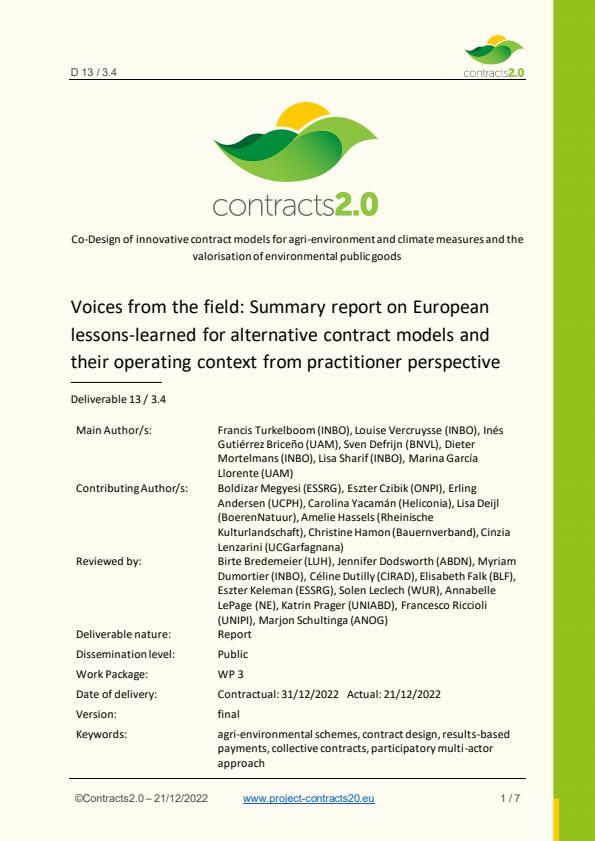Voices from the field: Summary report on European lessons-learned for alternative contract models and their operating context from practitioner perspective
Details
| Number of pages | 67 |
|---|---|
| Type | Report not published by INBO |
| Category | Research |
| Language | English |
Bibtex
@misc{6a9297ea-cb5e-48bd-b6c1-0571ef6452d1,
title = "Voices from the field: Summary report on European lessons-learned for alternative contract models and their operating context from practitioner perspective",
abstract = "As the challenge of biodiversity conservation and environmental protection in agricultural areas is pressing, innovative and more efficient approaches to design new contracts are being advocated for. Designing policy instruments via bottom-up processes promises to improve the legitimacy and efficiency of the contracts, ensure the incorporation of farmers’ knowledge in the agri-environmental contracts, and thus increase the likelihood for their uptake. In the Contracts2.0 project, 13 Contract Innovation Labs (CILs) were established with practitioners (including mainly farmers, but also land owners, NGO staff, local government officers) in 9 European countries. Practitioners were asked to reflect on the strengths and weaknesses of new and existing contracts, and to propose so-called “dream contracts”, which were then considered by policy makers for possible implementation. This report consists of 10 thematic briefs that elaborate on the perspective of the practitioners themselves, and their view on novel contracts such as results-based or collective contracts. What are the benefits for farmers and for society of these contracts, and what should be taken into account when implementing them? ",
author = "Francis Turkelboom and Louise Vercruysse and Inés Gutiérrez Briceño and Sven Defrijn and Dieter Mortelmans and Lisa Shariff and Marina Garcia-Llorente",
year = "2022",
month = dec,
day = "21",
doi = "",
language = "English",
publisher = "Instituut voor Natuur- en Bosonderzoek",
address = "Belgium,
type = "Other"
}
Authors
Francis TurkelboomLouise Vercruysse
Inés Gutiérrez Briceño
Sven Defrijn
Dieter Mortelmans
Lisa Shariff
Marina Garcia-Llorente

